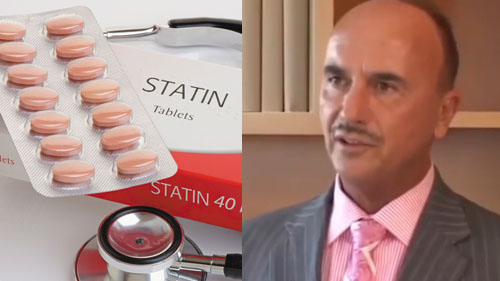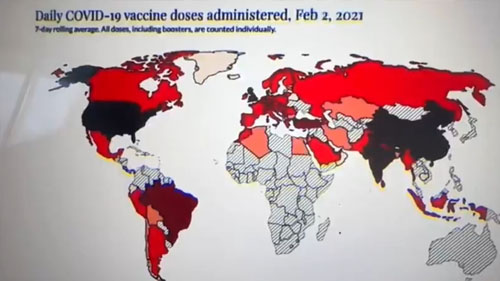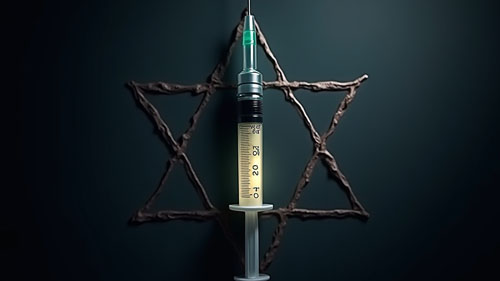| Recent Featured Videos and Articles | Eastern “Orthodoxy” Refuted | How To Avoid Sin | The Antichrist Identified! | What Fake Christians Get Wrong About Ephesians | Why So Many Can't Believe | “Magicians” Prove A Spiritual World Exists | Amazing Evidence For God | News Links |
| Vatican II “Catholic” Church Exposed | Steps To Convert | Outside The Church There Is No Salvation | E-Exchanges | The Holy Rosary | Padre Pio | Traditional Catholic Issues And Groups | Help Save Souls: Donate |  |









 " />
" /> " />
" /> " />
" /> " />
" /> " />
" />




Some quotes to get a better perspective on the “Una Cum” Issue
Audio discussion about the "una cum" issue, where one may receive sacraments, refuting radical schismatic views[44 min. audio]
These points serve to refute the position of those who assert that it would be a mortal sin or a compromise of the faith to attend any Mass where Benedict XVI is prayed for as the pope. Some of these individuals have erred so greatly on this issue, and become so adamant concerning their false views about which Masses are off-limits (essentially condemning everyone as a heretic or an apostate who goes to any priest with a heretical theological position), that they have fallen into schism. As this audio discussion shows, they have taken a position which would require them to condemn as a liberal heretic the great and extremely rigorous Pope St. Pius V. Hence, these points serve as a vindication of the balanced and Catholic position we have enunciated on the question of where one may receive sacraments today. We have enunciated our position here: Where to go to Mass or confession today?. This audio, with the accompanying quotes, serves a refutation of the radical false traditionalist schismatics.
Let’s be clear, however: none of this discussion or these quotes is meant to suggest that it’s acceptable for a priest or bishop to include Antipope Benedict XVI’s name in the Te Igitur prayer of the Mass (or the equivalent prayer in an Eastern Rite Liturgy). It is not acceptable for them to do so. Nor is this meant to suggest in any way that all or most of the traditional Masses where the priest accepts Benedict XVI as pope should be attended. In our view, only a very limited number of them may be attended, because few priests would not be notorious heretics, as our guidelines explain. Rather, this discussion, with the accompanying quotes, is meant to show how a traditional Catholic can be justified in receiving Communion from certain priests who celebrate a traditional Mass and recognize Benedict XVI as the pope. It serves as a defense of the position we have enunciated. One can be justified in going to some of these priests, if one doesn’t agree with the priest or support him and if the priest is not notorious or imposing. This is proven by these points. These points thus serve to completely refute certain radical false traditionalist schismatics.
POPE ST. PIUS V ON RE-ADMITTING ENGLISH SCHISMATICS
The extremely rigorous and totally Catholic Pope St. Pius V was giving conditions for re-admitting schismatics in England into the Catholic Church. These schismatics had been compromised with a new false “Mass” (like the New Mass) and heresies which were comparable in many ways to what we are dealing with in the Vatican II sect. The quote from The Rise and Growth of the Anglican Schism (below) also proves that many were receiving traditional sacraments from priests in England who had compromised. These priests had compromised more out of cowardice than agreement with the heretical Queen. Thus, they were willing to give sacraments to traditionalists. So, faced with such an ecclesiastical situation, which was similar to ours, what did this extremely rigorous pope require for these converts? Did he require them to not receive Communion from any such priest who had compromised or was heretical in some way? Did he give any such requirement? No. He told them they must not go to the Protestant service or receive the invalid Protestant host – period.
POPE ST. GELASIUS URGING BISHOPS TO REMOVE NAME OF NON-CATHOLIC BISHOP FROM THEIR DIPTYCHS
As we can see, it was very important for bishops, etc. to remove the names of heretics and schismatics from their diptychs (the ancient equivalent of the Te Igitur prayer). But did Pope St. Gelasius make any effort to excommunicate all Catholic Christians who continued to attend Mass in Illyria if their bishops didn’t comply or were slow to comply? There is no evidence of this whatsoever.
We quote this as an example of how common it was in the first millennium for important Episcopal Chairs to be in the hands of heretics and/or schismatics. Many other quotes could be given. These Episcopal Chairs or Sees would then, at some point, be restored by occupation by a Catholic bishop. This was a common occurrence. With all of this shifting in and out of heretics and schismatics, there were probably countless times when priests and bishops were slow or negligent or delinquent in removing the heretic or schismatic’s name from the diptychs. (The diptychs is the place where the name of the bishop and/or bishops held to be in communion – the proper ecclesiastical authorities – would be mentioned in the liturgy. It was the ancient equivalent of the Te igitur prayer.)
Thus, there were almost certainly countless times where Catholics (who did not agree with any heresy or schism) were attending Masses where the priest mentioned the name of one of these heretics. Yet the popes never decreed – or at the very least did not consistently decree – that all Catholics must be vigilant in this regard, and never attend any Mass (under pain of mortal sin) where the priest was failing in his duty to remove the heretic’s name; nor did the popes excommunicate the laypeople for failing in any obligation in this regard. The responsibility fell to the priests and the bishops offering the liturgy.
POPE ST. ANASTASIUS ON THE ORDINATION OF SCHISMATICS
This serves to refute the position of certain radical schismatics. Some of these radical false traditionalist schismatics assert that priests who have been ordained by bishops who were heretics or schismatics or compromisers or irregular in some way are themselves necessarily and/or irremediably off-limits and illegal for having come from such bishops. For instance, one schismatic asserted in a formal “abjuration”: “I reject and condemn as illegal and schismatic any bishop or priest that was consecrated or ordained by [etc., therein followed a list of independent bishops]…”
How different was the view of true Catholic popes from the view of the radical false traditionalist schismatics? As we see above, the true Catholic popes were reasonable; they recognized that you are not injured by the schismatic simply because you have been ordained by him, unless you have agreed with him or helped him or been obstinately affiliated with him after becoming aware of what he was involved with against the Church. The popes rejected the false mentality of the radical schismatics, according to which schism/heresy spreads by osmosis and infects you and condemns you even if you don’t agree with it or haven’t helped it or supported it at all.
THE ANGLICAN SCHISM PARALLELS THE VATICAN II SCHISM: FR. RISHTON CONFIRMS OUR POSITION
Speaking of the decrees which were issued by the heretical Queen Elizabeth, which attempted to force Catholics to conform to a New Mass and heretical teachings, Fr. Rishton summarizes:
There are a number of important things to consider in this quote. First, a reader should be struck by how much this quote resembles the post-Vatican II period with the New Mass and Indult priests. It could be describing what has gone on with Indult priests for the past few decades, but it comes from 16th century Protestant England! The parallel is amazing. Second, notice that Fr. Rishton clearly denounces receiving the bread from the New English “Mass” which had been brought into the churches in England (the Calvinist Supper); he considers doing so to partake of the table of devils. What he’s describing would be the equivalent of going to the New Mass today. He obviously considers going there gravely wrong.
Now notice that Fr. Rishton indicates that it’s “sad” that some of these compromising priests were giving to people “more careless about the faith the bread prepared for them according to the heretical rite” at the same time these priests were giving Communion to “Catholics… according to the rite of the Church.” Notice that he indicates that the people who received Communion according to the traditional rite, but received that Communion from a priest who used both rites (i.e. a compromising heretic), were more careful about the faith! Think about the significance of this point to the question we’re discussing. Fr. Rishton obviously doesn’t condemn these people as heretical for receiving Communion from a heretic; for he recognized that they didn’t agree with the heretic or receive the invalid bread which he gave to others.
Remember, according to certain radical schismatics, the position which we’ve enunciated, that one may receive sacraments from certain non-sedevacantist priests who hold heretical views but aren’t notorious or imposing about them (and as long as one doesn’t support the priest), is mortally sinful and heretical. Did this Catholic priest in the 16th century (Fr. Rishton) think so? Obviously not. He went even further. While he certainly condemned going to the New English Mass, he obviously didn’t even consider as heretics people who were receiving sacraments (in the traditional rite) from priests who also used the heretical rite of “Mass” and were themselves heretics who compromised with the apostate Queen. Therefore, the radical schismatics, who condemn our carefully thought out view as heretical, would have to condemn this famous Catholic missionary priest and author as a “manifest” and “notorious” heretic. Is that really plausible? Think about it. Is it really likely that this priest was a heretic? No. Is it likely that his view was a horrible compromise or a vast departure from what most priests of the time held? No. This should show us how Catholics of the time viewed such matters. They were reasonable. They recognized distinctions. They recognized the spirit of the law with regard to such questions. The spirit of the law always comes into play with how to handle such matters; but not in the case of dogmas, which must always be adhered to according to the letter.
These Catholic priests recognized that, in necessities and crises, things may be done, for the greater benefit of souls and spiritual advantage, that normally wouldn’t be done, as long as the faith is not compromised. They recognized that to receive a sacrament from a priest is not to endorse that priest’s personal heresies or his compromises, unless that priest imposes them upon you or unless you support him in those heresies or unless he makes his heretical views notorious. These Catholic priests recognized that the sacraments are powerful; that God wants people to receive them, if they can receive them in an acceptable way without any denial of the faith. They recognized that those Catholics who were approaching the compromising priest in that awful period under Elizabeth, would not have been going to such priests if they had another option. The radical schismatics, who viciously condemn our view on this matter, better think again; for they are wrong and headed toward the abyss. This is because condemning as heretics people who aren’t is schismatic.
Sign up for our free e-mail list to see future vaticancatholic.com videos and articles.
Recent Content
^